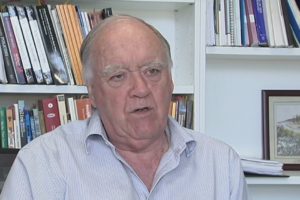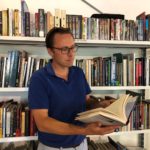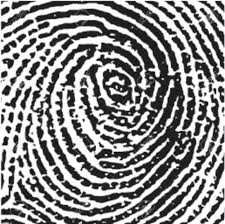In 2019, the ARCA Postgraduate Program in Art Crime and Cultural Heritage Protection will be held from May 30 through August 14, in the heart of Umbria, in Amelia, Italy. In the months leading up to the start of the program, this year’s professors will be interviewed. In this occasion, I am speaking with Dr. Duncan Chappell, a lawyer and criminologist, who also serves as Chair of the International Advisory Board of the Australian Research Council’s Center of Excellence in Policing and Security and is the former Director of the Australian Institute of Criminology.
 Can you tell us something about your background and work?
Can you tell us something about your background and work?
I have enjoyed a rather peripatetic and varied career which began in the remote Australian island state of Tasmania, or Van Diemen’s Land as it was originally called by its 1642 Dutch discoverer, Abel Tasman. It later became infamous as the dumping ground for most of the criminals transported by the British following Australia’s establishment as a European settlement and penal colony in 1788, all described in an entertaining and comprehensive way by the late art critic Robert Hughes in his book, The Fatal Shore.
I graduated with dual degrees in Arts and Law from the University of Tasmania in the early 1960’s and then received a scholarship with the University of Cambridge where I completed a PhD in criminal law and criminology. I should probably add that my original choice when arriving in Cambridge was to study for an international law degree with a view to perhaps joining eventually the Australian foreign service. However, on arrival at my Cambridge college in 1962 I was persuaded by my college supervisor to go and chat with Professor Leon Radzinowitz about possibly becoming a member of the then newly established Cambridge Institute of Criminology. It was at that point that I guess that I became an accidental criminologist!
I suspect that many career choices are made in this way! But it also proved to be a happy choice because at that time there were very few lawyers who also had criminological qualifications. As a result I had no difficulty getting a job back in Australia when I graduated in 1965 where I took a job which involved teaching criminal law and criminology to law students at the University of Sydney, the academic institution where now in 2019 I remain an honorary faculty member.
During 50 years or so I have been very fortunate to live and work in a number of countries and professional settings including the United States, Canada and Italy. I think it was in part the Italian experience in the 1990’s when I was attached to the United Nations Interregional Crime and Justice Research Institute [UNICRI] in Rome that I first began to develop an extensive interest in art crime, as I witnessed the richness of Italy’s cultural heritage and also learned of the rampant plunder of its antiquities that was occurring as well as the measures being taken to try and prevent it.
That interest in heritage crime has continued to the present time and led to numbers of collaborative multidisciplinary research and writing projects on topics ranging from fraud in the indigenous art market in Australia to the illicit traffic in cultural property in Vietnam.
What do you feel is the most relevant aspect of your course?
The course that I have now taught at ARCA for the past five years provides a broad based introduction to those aspects of art and cultural heritage law that relate to theft, fraud and looting. Reflecting the students who participate in the course, it is designed for a multi-disciplinary audience although much of the relevant law, national and international, does raise some rather tricky and complex legal issues.
 What do you hope participants will get out of your course?
What do you hope participants will get out of your course?
I hope they will begin to appreciate and understand some of the legal and practical challenges that exist in combating any form of art crime. To assist this process one of the key features of the course is the choice each participant makes to select a particular area of the online art market to study in more depth, as theft and fraud can be persistent problems in the digital market. The choice they make then forms the basis of a short classroom presentation, and is extrapolated on in greater detail in a formal research paper. The range and quality of the presentations and papers resulting from this process has been quite astounding.
What would a typical day be like in your classroom?
In addition to the presentations, as much as possible I seek to stimulate discussion and dialogue throughout my classes. We also spend one day in a field class visiting the World Heritage listed Etruscan necropolis site at Cerveteri, Banditaccia. There, entering the city of the dead of a now disappeared civilization, among the graves, we get a look at what history loses during illegal excavations, as unprotected Etruscan sites throughout Italy have been looted and robbed. This visit helps to encourage lively discussion about the complexity of protecting cultural heritage.

The necropolis of Banditaccia Image Credit: ARCA
While each year participants are very enthusiastic about your course, is there anything you learn from them in the class?
I have been massively impressed by, and grateful for, what I have learned from the wonderful individuals who have participated in the ARCA program over the years I have been associated with it. The richness and variety of the experience and knowledge they communicate has been one of the enduring strengths and delights of the program for me.
In anticipation of your courses, what book, article, or movie would you recommend to students?
For a rollicking account of the contemporary art market I strongly recommend reading Don Thompson’s book The Orange Balloon Dog. And for a little more detailed historical background and description of that market Phillip Hook’s Rogues Gallery which is equally stimulating and quite informative.
For a detailed prospectus and application materials or for general questions about this postgraduate program please contact us at education@artcrimeresearch.org
 Edgar Tijhuis serves as the Academic Director at ARCA and is a visiting scholar at the Institute of Criminology in Ljubljana. He is responsible for the postgraduate certificate program in the study of art crime and cultural heritage protection and since 2009, has taught criminology modules within the ARCA program.
Edgar Tijhuis serves as the Academic Director at ARCA and is a visiting scholar at the Institute of Criminology in Ljubljana. He is responsible for the postgraduate certificate program in the study of art crime and cultural heritage protection and since 2009, has taught criminology modules within the ARCA program.
